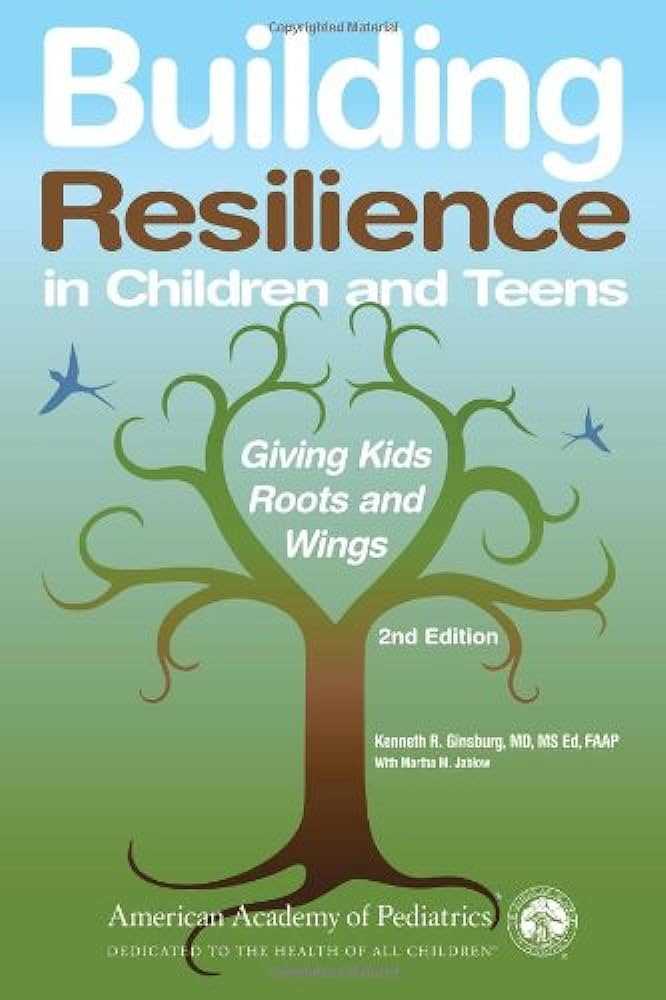
Adolescence is a period of significant growth and change, both physically and emotionally. It is a time when adolescents are navigating their way through various challenges and experiences, often leading to stress and uncertainty. However, it is during these formative years that individuals have the opportunity to develop resilience, which can help them overcome adversity and thrive in the face of challenges.
Resilience is the ability to bounce back from difficult situations and adapt to change. It involves developing a strong sense of self, a positive outlook, and effective coping mechanisms. Adolescents who are resilient are better equipped to handle the pressures and demands of everyday life, as well as the unique challenges they may face.
Becoming resilient is a process that requires self-reflection, self-care, and a supportive environment. It involves building strong relationships with family and friends, developing effective communication skills, and learning to manage emotions in a healthy way. By nurturing these skills and qualities, adolescents can better navigate the ups and downs of adolescence and emerge stronger and more resilient.
The Impact of Stress on Adolescents
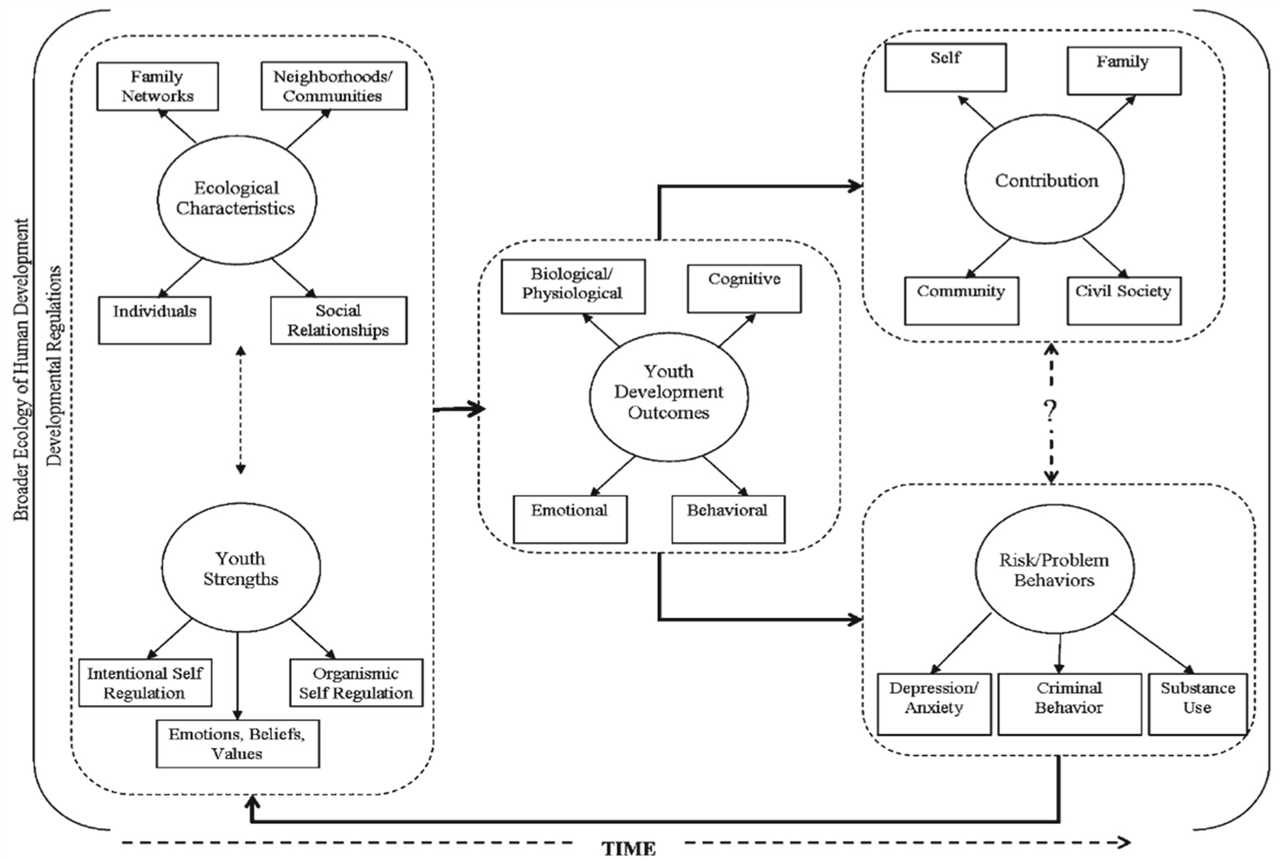
Adolescence is a critical period in a person’s life, marked by significant physical, emotional, and cognitive changes. During this time, adolescents are transitioning from childhood to adulthood, and they are faced with numerous challenges and stressors. These stressors can have a profound impact on their overall well-being and development.
Adolescents who are resilient have the ability to bounce back from adversity and are better equipped to handle stress. However, not all adolescents have developed this resilience, making them more vulnerable to the negative effects of stress.
Experiencing high levels of stress during adolescence can lead to a range of negative outcomes. It can affect their mental health, leading to symptoms of anxiety and depression. It can also impact their physical health, increasing the risk of developing chronic conditions such as cardiovascular disease and obesity.
Furthermore, stress can influence their academic performance and social relationships. Adolescents who are overwhelmed by stress may have difficulty concentrating and may experience a decline in their academic achievements. They may also struggle to maintain healthy relationships with their peers and family members.
It is important to recognize the impact of stress on adolescents and take steps to support their well-being. By providing them with the necessary tools and resources to develop resilience, we can help them navigate through the challenges of adolescence and emerge stronger and more capable of dealing with stress.
Adolescents need a supportive environment where they feel safe and valued. They should be encouraged to engage in activities that promote physical and emotional well-being, such as exercise, mindfulness, and creative outlets. Additionally, teaching them effective coping strategies and problem-solving skills can empower them to manage stress in a healthy way.
By understanding the impact of stress on adolescents and providing them with the necessary support, we can help them thrive during this crucial stage of development.
Understanding the Causes of Adolescent Stress
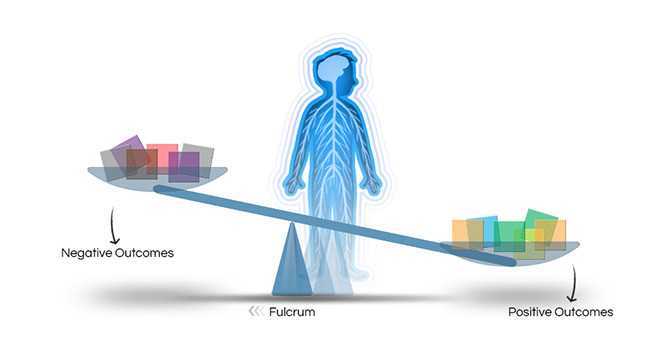
Adolescence is a period of significant change and growth, both physically and emotionally. During this time, adolescents are becoming more independent and are experiencing a wide range of new experiences and challenges. However, these changes can also lead to increased levels of stress.
One of the main causes of adolescent stress is the pressure to succeed academically. Many adolescents feel the need to excel in school in order to secure a bright future. This pressure can be overwhelming and can lead to feelings of anxiety and self-doubt. It is important for adolescents to understand that their worth is not solely determined by their academic achievements, and that it is okay to ask for help when needed.
Another cause of stress for adolescents is social pressure. During this time, adolescents are trying to fit in and establish their identity. They may feel the need to conform to societal expectations and may experience stress if they do not feel like they belong. It is important for adolescents to understand that it is okay to be themselves and that they do not have to conform to fit in.
Family dynamics can also contribute to adolescent stress. Conflict within the family, such as divorce or financial difficulties, can cause stress and uncertainty for adolescents. It is important for adolescents to have a support system in place and to communicate their feelings and concerns with trusted adults.
Finally, the rapid physical changes that occur during adolescence can also contribute to stress. Adolescents may feel self-conscious about their appearance and may compare themselves to their peers. It is important for adolescents to understand that everyone develops at their own pace and that there is no “right” or “wrong” way to look.
In conclusion, there are many factors that contribute to adolescent stress. It is important for adolescents to be resilient and to develop healthy coping mechanisms to manage stress. By understanding the causes of stress and seeking support when needed, adolescents can navigate through this challenging period and develop into resilient adults.
Recognizing the Signs of Stress in Adolescents

Adolescence is a crucial period of development, during which young individuals undergo significant physical, emotional, and cognitive changes. It is a time of exploration, self-discovery, and growth. However, it can also be a time of increased stress and vulnerability.
Adolescents are resilient, but they are not immune to experiencing stress. It is important for parents, educators, and healthcare professionals to recognize the signs of stress in adolescents in order to provide the necessary support and guidance.
Some common signs of stress in adolescents include:
- Changes in behavior, such as irritability, anger, or withdrawal
- Difficulty concentrating or staying focused
- Changes in sleep patterns, such as insomnia or excessive sleeping
- Changes in appetite, such as overeating or loss of appetite
- Physical symptoms, such as headaches or stomachaches
- Decreased interest in activities they used to enjoy
- Academic decline or decreased motivation
- Increased sensitivity to criticism or rejection
- Social withdrawal or isolation
It is important to note that these signs may vary from person to person, and some individuals may exhibit different signs or symptoms of stress. It is also important to consider the context and individual circumstances when assessing stress in adolescents.
Recognizing the signs of stress in adolescents is the first step towards providing them with the necessary support and resources to develop resilience and cope with stress effectively. By creating a safe and supportive environment, and by encouraging open communication, we can help adolescents navigate the challenges of adolescence and build their resilience.
The Long-Term Effects of Untreated Stress in Adolescents

Adolescence is a critical period of development, during which individuals undergo significant physical, emotional, and cognitive changes. It is also a time when adolescents are more susceptible to experiencing stress due to various factors such as academic pressures, social relationships, and self-identity issues.
When adolescents are exposed to chronic or severe stress without proper intervention or support, it can have long-term effects on their overall well-being. Untreated stress in adolescents can lead to a range of negative outcomes that can persist into adulthood.
One of the most significant long-term effects of untreated stress in adolescents is the increased risk of developing mental health disorders. Adolescents who experience chronic stress are more likely to develop anxiety disorders, depression, and other mood disorders. This can have a profound impact on their daily functioning, academic performance, and overall quality of life.
Furthermore, untreated stress in adolescents can also affect their physical health. Research has shown that chronic stress can weaken the immune system, making individuals more susceptible to illnesses and infections. It can also lead to the development of chronic conditions such as cardiovascular disease, obesity, and diabetes later in life.
In addition to the physical and mental health consequences, untreated stress in adolescents can also impact their social and emotional development. Adolescents who are constantly experiencing stress may have difficulty forming and maintaining positive relationships. They may also struggle with emotional regulation, leading to increased aggression, impulsivity, and risk-taking behaviors.
It is important for parents, educators, and healthcare professionals to recognize the signs of stress in adolescents and provide appropriate support and intervention. By addressing stress early on and teaching adolescents healthy coping mechanisms, we can help prevent the long-term negative effects of untreated stress and promote resilience in adolescents.
In conclusion, untreated stress in adolescents can have significant long-term effects on their mental, physical, and social well-being. It is crucial to address and manage stress in adolescents to prevent the development of adverse outcomes and promote their overall resilience and well-being.
Building Resilience in Adolescents
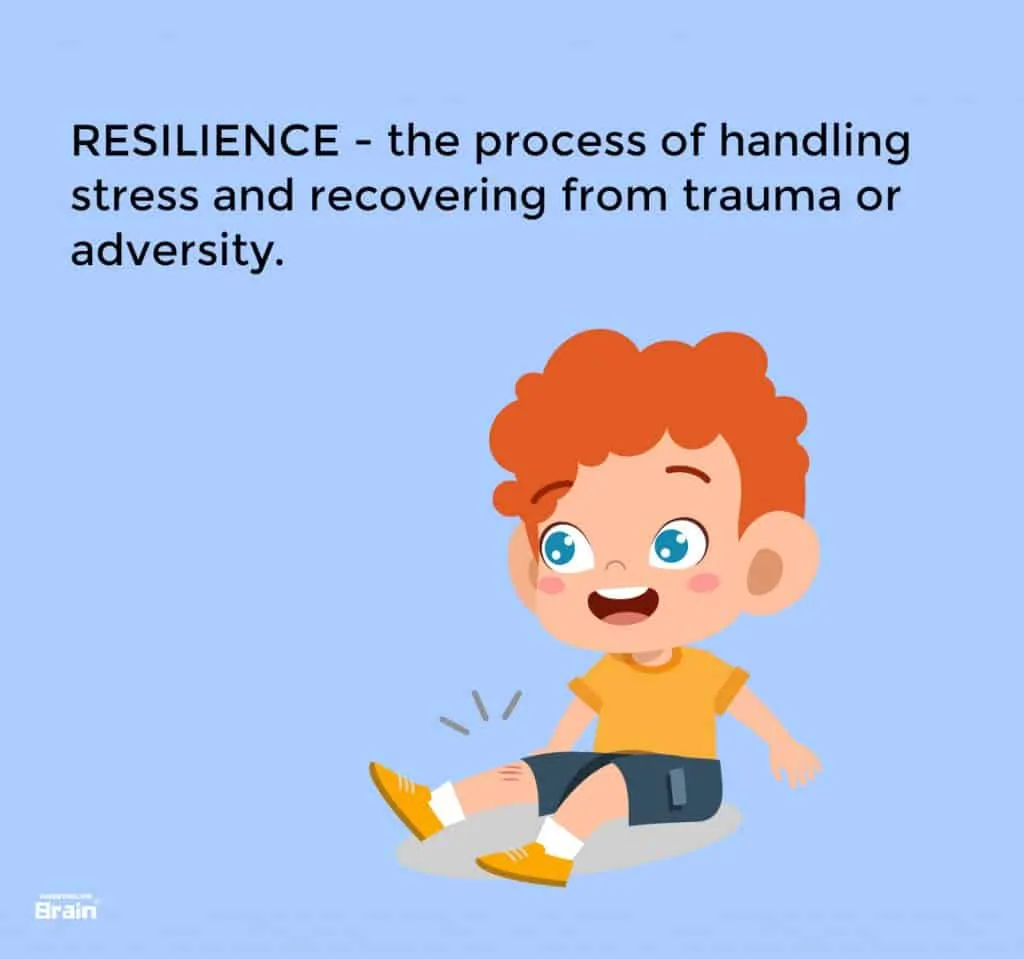
Adolescence is a challenging period of life, filled with stress and uncertainty. It is during this time that young people are experiencing significant changes in their bodies, emotions, and social relationships. This can lead to increased levels of stress and vulnerability.
However, it is important to remember that adolescents are also incredibly resilient. They have the capacity to adapt and bounce back from adversity. Building resilience in adolescents is crucial for their overall well-being and development.
Resilience is the ability to cope with and recover from stress, adversity, and challenges. It is not about avoiding or eliminating stress, but rather about developing the skills and resources to navigate through difficult situations.
There are several ways to support and foster resilience in adolescents:
| 1. Building a supportive environment | Creating a safe and nurturing environment at home, school, and in the community is essential for adolescents to develop resilience. This includes providing emotional support, setting clear boundaries, and fostering positive relationships. |
| 2. Encouraging problem-solving skills | Teaching adolescents how to identify problems, brainstorm solutions, and make informed decisions can help them develop resilience. Encouraging them to take responsibility for their actions and learn from their mistakes is also important. |
| 3. Promoting healthy coping strategies | Helping adolescents develop healthy coping strategies, such as exercise, mindfulness, and engaging in hobbies or activities they enjoy, can enhance their resilience. Teaching them how to manage stress and regulate their emotions is crucial. |
| 4. Building a sense of purpose and meaning | Encouraging adolescents to explore their interests and passions, set goals, and find a sense of purpose can contribute to their resilience. Helping them understand their values and strengths can also foster resilience. |
| 5. Providing opportunities for growth and learning | Offering adolescents opportunities to learn new skills, take on challenges, and engage in meaningful activities can build their resilience. Encouraging them to step out of their comfort zone and embrace new experiences is important. |
By implementing these strategies, parents, educators, and communities can support adolescents in building resilience and equipping them with the tools they need to navigate through stress and adversity. This will not only benefit their mental and emotional well-being but also their long-term success and happiness.
Developing Coping Mechanisms for Adolescents

Becoming resilient is an essential skill for adolescents who are experiencing stress. It is important for them to develop coping mechanisms that can help them navigate through challenging situations and build their resilience.
One effective coping mechanism for adolescents is to engage in physical activities. Exercise has been shown to reduce stress levels and improve overall well-being. Encouraging adolescents to participate in sports, join fitness classes, or simply engage in regular physical activities can help them relieve stress and develop resilience.
Another coping mechanism is to encourage adolescents to practice mindfulness and relaxation techniques. Teaching them techniques such as deep breathing exercises, meditation, or yoga can help them manage stress and develop resilience. These practices can help adolescents become more self-aware, improve their ability to regulate emotions, and enhance their overall well-being.
It is also important for adolescents to develop a support system. Encouraging them to connect with friends, family members, or trusted adults can provide them with a sense of belonging and support. Having a support system can help adolescents feel less alone and more resilient in the face of stress.
Additionally, teaching adolescents problem-solving skills can help them develop coping mechanisms. By teaching them how to identify problems, brainstorm solutions, and evaluate the effectiveness of different strategies, adolescents can become more resilient and better equipped to handle stressful situations.
Overall, developing coping mechanisms is crucial for adolescents who are experiencing stress. By engaging in physical activities, practicing mindfulness and relaxation techniques, building a support system, and developing problem-solving skills, adolescents can become more resilient and better equipped to navigate through challenging situations.
Teaching Healthy Stress Management Techniques
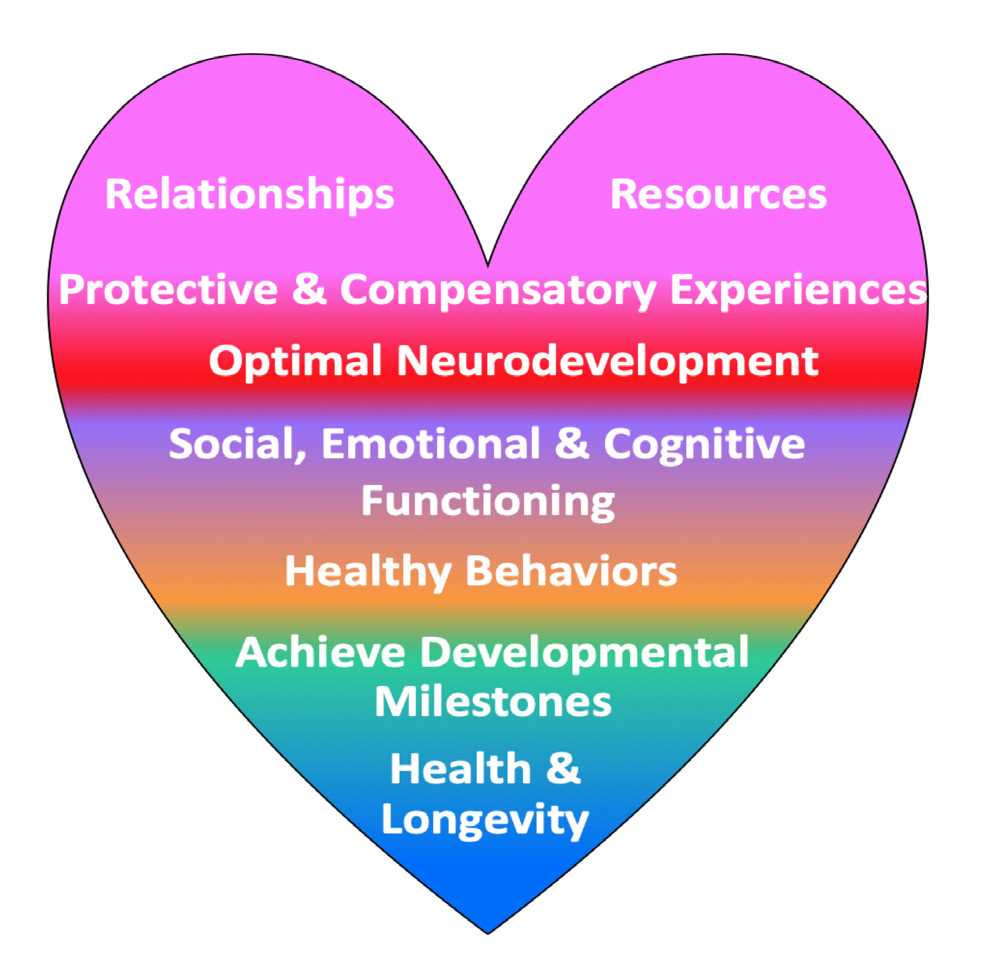
Adolescents today face a multitude of stressors that can impact their mental and physical well-being. From academic pressures to social challenges, it is essential to equip them with healthy stress management techniques to build resilience and navigate these experiences.
One effective way to teach adolescents healthy stress management techniques is through mindfulness practices. Mindfulness involves being present in the moment and accepting one’s thoughts and feelings without judgment. By teaching adolescents to focus on their breath, sensations in their body, and thoughts, they can learn to manage stress more effectively.
Another technique is encouraging regular physical activity. Exercise has been shown to reduce stress and improve mood by releasing endorphins, the body’s natural feel-good chemicals. Encouraging adolescents to engage in activities they enjoy, such as sports or dance, can help them cope with stress and build resilience.
Teaching adolescents about the importance of self-care is also crucial. Encouraging them to prioritize activities that promote relaxation and well-being, such as taking a bath, reading a book, or spending time with loved ones, can help them reduce stress and recharge.
Furthermore, teaching adolescents effective time management skills can help them better balance their responsibilities and reduce stress. By teaching them how to prioritize tasks, set realistic goals, and break tasks into manageable chunks, they can feel more in control and less overwhelmed.
Lastly, it is essential to teach adolescents about the power of positive thinking. Encouraging them to challenge negative thoughts and replace them with more positive and realistic ones can help them develop a resilient mindset. This can be done through activities such as journaling, gratitude exercises, or positive affirmations.
In conclusion, teaching adolescents healthy stress management techniques is crucial for their overall well-being. By incorporating mindfulness practices, regular physical activity, self-care, time management skills, and positive thinking, adolescents can develop resilience and effectively navigate the stressors they may face.
Fostering a Supportive Environment for Resilience

Adolescence is a time of significant growth and development, both physically and emotionally. It is a period where individuals are experiencing various stressors and challenges that can impact their well-being. To support adolescents in becoming resilient, it is crucial to create a supportive environment that acknowledges their experiences and provides the necessary resources.
One way to foster a supportive environment is by encouraging open communication. Adolescents should feel comfortable expressing their emotions and sharing their experiences without fear of judgment. This can be achieved by actively listening to their concerns, validating their feelings, and offering guidance when needed.
Another important aspect is providing access to a network of supportive individuals. Adolescents benefit from having trusted adults, such as parents, teachers, or mentors, who can offer guidance and support. These individuals can serve as role models and provide a safe space for adolescents to explore their thoughts and feelings.
Additionally, it is essential to create opportunities for adolescents to develop their skills and strengths. Engaging in activities that promote personal growth and self-confidence can help build resilience. These activities can include participating in sports, joining clubs or organizations, or pursuing hobbies and interests.
Lastly, promoting self-care practices is crucial in fostering resilience. Adolescents should be encouraged to prioritize their well-being by engaging in activities that promote relaxation and stress reduction. This can include practicing mindfulness, engaging in physical exercise, or engaging in creative outlets such as art or music.
In conclusion, fostering a supportive environment for resilience in adolescents requires open communication, access to a network of supportive individuals, opportunities for skill development, and promoting self-care practices. By providing these resources and acknowledging their experiences, we can help adolescents become resilient and navigate the challenges they face during this crucial stage of development.
Effective Strategies for Parents and Educators

Adolescence is a critical period of development, where young individuals are becoming more independent and experiencing various challenges. One common challenge that adolescents face is stress, which can have a significant impact on their well-being and academic performance.
Parents and educators play a crucial role in supporting adolescents and helping them develop resilience to navigate through stressful situations. Here are some effective strategies that parents and educators can implement:
- Open communication: Encourage open and honest communication with adolescents. Create a safe and non-judgmental space where they can express their thoughts and feelings.
- Active listening: Practice active listening when adolescents share their concerns or problems. Validate their feelings and provide empathy to let them know that they are being heard and understood.
- Teach coping skills: Help adolescents develop effective coping skills to manage stress. This can include teaching relaxation techniques, problem-solving skills, and positive self-talk.
- Encourage healthy habits: Promote healthy habits such as regular exercise, proper nutrition, and sufficient sleep. These habits can have a positive impact on both physical and mental well-being.
- Set realistic expectations: Avoid putting excessive pressure on adolescents to achieve unrealistic goals. Set realistic expectations and help them understand that it’s okay to make mistakes and learn from them.
- Provide support systems: Help adolescents build a strong support system by encouraging healthy relationships with peers, family members, and mentors. These relationships can provide emotional support during challenging times.
- Model resilience: Model resilience by demonstrating positive coping strategies and problem-solving skills in your own life. Adolescents learn by example, so it’s important to show them how to effectively navigate through difficult situations.
- Seek professional help: If stress becomes overwhelming or persists for a long time, it’s important to seek professional help. Encourage adolescents to talk to a counselor or therapist who can provide additional support and guidance.
By implementing these strategies, parents and educators can help adolescents develop resilience and effectively manage stress. This will not only contribute to their overall well-being but also enhance their academic performance and future success.

I am Patrina de Silva, a psychologist and mental health blogger in Sri Lanka. After obtaining psychology degrees from the University of Colombo and Monash University, I returned home to work as a counselor while also starting the popular blog “Pressy but Happy” to provide advice on psychological issues. Over the past decade, my empathetic articles have made my blog a leading mental health resource in the country. In addition to writing, I maintain a private therapy practice, frequently volunteer counseling time, and conduct seminars, driven by my passion for destigmatizing mental illness and educating the public on the mind-body connection. I strive to be an influential voice in my field through my compassionate approach.
